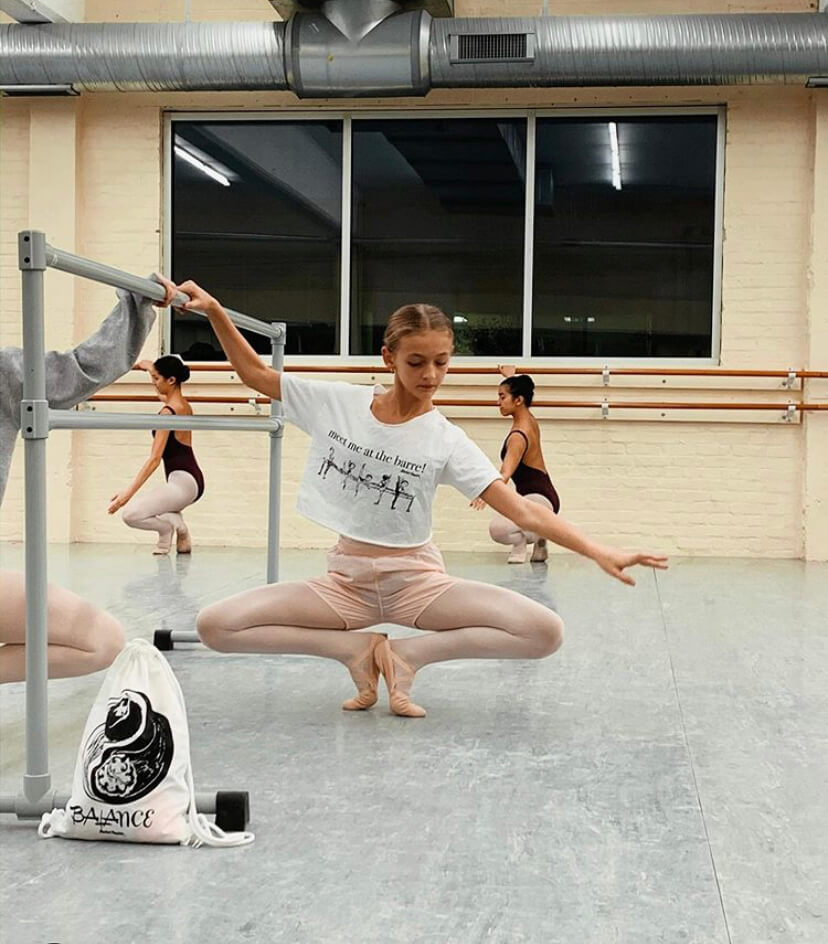Dance Barre Psychology: Boost Confidence & Mental Clarity
04/08/2025 3:00pm

Dance barre training isn’t just about sculpting muscles or perfecting posture—it’s a powerful tool for transforming the mind. The precise movements, structured routines, and flow of ballet-inspired workouts can profoundly affect confidence and mental clarity. Each controlled movement at the barre challenges both body and mind, creating a sense of empowerment with every step. Whether you're an experienced dancer or simply exploring fitness, integrating barre exercises into your routine can bring lasting psychological benefits.
The Mind-Body Connection in Dance Barre
Movement and mindset are deeply intertwined. Science has long confirmed that physical exercise directly impacts brain function, cognitive abilities, and emotional resilience. Dance barre, in particular, requires a combination of strength, control, and mindfulness, making it an ideal practice for improving mental clarity.
Each movement at the barre demands focus and balance. The precision needed in a plié or tendu forces the brain to stay engaged, refining muscle memory while enhancing concentration. When practiced regularly, this heightened awareness carries over into daily life, improving attention span, problem-solving skills, and emotional regulation.
Neurologically, dance barre exercises stimulate the brain, increasing oxygen flow and encouraging neural activity. Like other forms of movement, barre workouts activate the hippocampus, the part of the brain responsible for learning and memory. The structured repetition of exercises not only builds muscle tone but also strengthens cognitive function over time.
Confidence Through Mastery & Progress
One of the most rewarding aspects of dance barre is the sense of mastery it brings. As beginners start with foundational movements and gradually advance to complex sequences, the feeling of progression boosts confidence.
Learning any new skill fosters self-assurance. Dance barre is unique in its ability to create instant feedback—whether it's refining posture, holding a controlled arabesque, or improving endurance, the visible progress fuels motivation. Each small achievement, whether physical or mental, reinforces a sense of accomplishment, which spills over into other areas of life.
Additionally, the discipline of barre cultivates perseverance. Many movements require multiple adjustments before they feel natural, and the patience required to refine technique encourages resilience. Overcoming initial struggles at the barre fosters an inner strength that transcends beyond the studio or gym.
Even outside of dance settings, self-confidence thrives when individuals feel physically strong and in control of their movements. Proper posture, poised alignment, and increased body awareness shape the way people carry themselves, reinforcing a more confident outward presence.
Mental Clarity & Stress Reduction
In a world brimming with distractions and constant pressure, finding moments of mindfulness is crucial for well-being. Dance barre exercises encourage a meditative flow that clears the mind and melts away stress.
The rhythmic precision of barre workouts channels attention away from worries and toward controlled movement. Focused breathing during pliés and relevés regulates the nervous system, promoting relaxation and easing tension.
Studies have shown that dance movements trigger the release of endorphins—natural mood boosters that alleviate stress. Additionally, the repetitive nature of barre training allows the mind to settle, creating a meditative state that improves overall mental clarity.
Music also plays a role in reducing stress during barre workouts. Whether flowing to classical compositions or upbeat rhythms, the harmony between music and movement stimulates emotional release, offering a therapeutic experience.
Many practitioners note that a session at the barre provides a break from racing thoughts, allowing them to return to daily responsibilities with a refreshed perspective.
The Social & Emotional Benefits of Dance Barre
For those who train in group settings, the social aspect of dance barre is just as beneficial as the physical experience. Connecting with others in a shared fitness journey fosters motivation and deepens engagement with the practice.
Group barre classes provide structured support where individuals feel encouraged rather than judged. Unlike some high-intensity workouts that may breed competition, barre fosters camaraderie. The shared focus on improvement rather than perfection creates a welcoming atmosphere that boosts emotional well-being.
Overcoming fears of inadequacy through structured repetition is another critical aspect of the psychological benefits of barre. Because each movement is broken down and refined progressively, students—whether beginners or seasoned dancers—develop a sense of trust in their own abilities.
Beyond structured classes, dance barre can also be a solo practice that supports emotional release. The fluidity of movements allows individuals to express themselves through motion, a form of non-verbal storytelling that can be profoundly healing.
Science-Backed Benefits & Studies
Research into the psychological effects of dance and structured movement has uncovered fascinating insights. Studies show that dancing can improve brain function, enhance emotional regulation, and even slow the aging process.
A 2017 study published in Frontiers in Human Neuroscience revealed that dancing activates multiple regions of the brain, strengthening neural pathways associated with memory and mood regulation. Furthermore, movement-based therapies are increasingly recognized for their ability to alleviate symptoms of anxiety and depression.
Another study from the Journal of Sports Science & Medicine found that structured dance workouts, such as barre, stimulate cognitive function more effectively than repetitive gym exercises. The complexity of dance movements challenges the brain, improving coordination, reaction times, and mental agility.
Additionally, psychologists and fitness experts emphasize the empowering nature of movement. Engaging in an activity like dance barre encourages individuals to take control of their bodies, reinforcing a positive mind-body relationship.
Conclusion
Dance barre is more than a fitness routine—it’s a psychological tool that nurtures confidence, mental clarity, and emotional resilience. The intricate coordination of barre exercises sharpens cognitive function, enhances self-esteem, and fosters mindfulness, providing benefits that go far beyond physical strength.
Whether practicing in a group setting or alone, barre movements offer an opportunity for self-reflection, growth, and empowerment. For those looking to refine both body and mind, incorporating dance barre into a routine is a transformative step toward balance and well-being.
Ready to experience the power of dance barre firsthand? Step up to the barre and feel the mental and physical shift!



